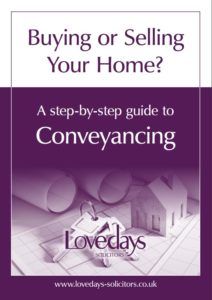- Home
- Personal Services
- Advice for Employees
- Conveyancing
- Dispute Resolution
- Boundary Disputes
- Dealing with Rent Arrears
- Japanese Knotweed Claims
- Landlord and Tenant Disputes
- Landlord Harassment & Illegal Eviction
- Negligence Claims Against Builders & Developers
- New Build Property Disputes
- Noisy Neighbour Disputes
- Personal Debt Collection
- Property Misrepresentations Claims
- Rights of Way Disputes
- Section 21 No Fault Evictions
- TOLOTA Claims
- Tree & Hedge Neighbour Disputes
- Divorce and Separation
- Family Law
- Lasting Power of Attorney
- Licensing
- Probate Law
- Trusts
- Wills
- Business Services
- Reviews
- Make An Enquiry
- Cost and Service Information
- About Us
- Contact Us
Unfair & Wrongful Dismissal Claims
If your employer has terminated your employment, then it can be a very distressing time. This is made even worse if you believe that your dismissal was wrongful or unfair. In order to dismiss someone from a position, there are certain criteria that employers need to fulfil. If they have not done this, then you may have a case for unfair dismissal or wrongful dismissal.
It is therefore very important that you understand what your rights are as an employee. This involves knowing what the fair criteria for dismissal are, what it says in your contract and whether the full disciplinary procedures of the business have been followed. In order to understand whether you have been a victim of wrongful dismissal or unfair dismissal, you need to seek professional legal advice.
The friendly and professional team Loveday Solicitors have vast amounts of expertise in employment law, and they can guide you through the whole process of determining your position and taking action if necessary.
What is Unfair Dismissal?
The termination of your employment contract may be deemed to be unfair if you have worked for the employer for at least two years and there was no fair reason for the dismissal, or the reason was not enough to justify the dismissal. It may also be classed as unfair dismissal if the employer has not followed a fair procedure such as the ones set out in their disciplinary policies.
There are a number of reasons for dismissal which are classed as fair under UK law. This can be the case if you are not able to do your job properly or if a persistent or long-term illness means that you are not able to do your job. Redundancy is also usually considered to be a fair form of dismissal, and you can be dismissed for gross misconduct without your employer going through normal disciplinary procedures.
There are also statutory restrictions which are considered to be fair, which means that you can be dismissed if employing you breaks the law in some way. If for example, it is impossible to carry on employing you, such as when a business is burnt down, then it is also fair to no longer employ you in the business.
However, there are also some automatically unfair dismissal reasons. It is unfair to dismiss you for making a flexible working request or for being pregnant or on maternity leave. It is also unfair if you were dismissed for wanting to take family leave, being a trade union member or representative, or taking part in legal official industrial action. Asking for any legal rights, such as being paid the National Minimum Wage, doing jury service or taking action over a health and safety issue, are also unfair reasons for dismissal. In addition to this, it is also unfair to dismiss anybody involved in whistleblowing or forcing anyone to retire.
{quote}
What is Wrongful Dismissal?
Wrongful dismissal is slightly different to unfair dismissal, and it usually applies when an employer has breached the contractual terms when terminating employment. This could be a breach of either an implied or expressed term of the contract.
Wrongful dismissal can take many forms and could apply if no notice, or inadequate notice, is given to dismiss the employee when it is not a case of gross misconduct. It could also be considered to be wrongful dismissal if a fixed term contract is terminated. Before it is due to expire, or a dismissal in breach of contractual, disciplinary or redundancy procedures.
If an employer is found to be guilty of wrongful dismissal, then they may be liable to pay the employee damages which reflects any losses they may have sustained as a result of the breach of contract.
The differences between wrongful and unfair dismissal might seem subtle, but the key difference is that unfair dismissal is a statutory right as per the Employment Rights Act 1996. However, wrongful dismissal is a breach of contract.
Legal Process for Challenging Dismissal
If you feel that you have been unfairly or wrongfully dismissed, then there are steps that you can take. In the first instance, you should consider appealing through your employer's official appeal process. However, it is important to consider whether you actually want the job back. If you decide to appeal, you can get help from a trade union, a legal professional or other organisations who can attend meetings with you and help in your negotiations with your employer.
The first thing you should do is check whether your company has a formal appeal process and see what steps they advise that you take. You should try to start your appeal as soon as you can. As there is a time limit if you later decide to take legal action. When appealing the process, it is important that you follow all internal processes and document every meeting that you attend and save all forms of communication, as these may be important at a later date.
If your appeal has been unsuccessful or you feel that you have not been treated fairly during the process, then you have the right to move forward to an employment tribunal. This is only possible if you have employee employment status and you have worked for your employer for at least two years. If the reason for your dismissal is classed as automatically unfair, then it does not matter how long you've worked for your employer.
It is important to remember that there are strict timetables for making a claim to an employment tribunal and so this needs to be submitted three months minus one day from the date that your employment ended.
Evidence Required for a Claim
If you believe that you have been unfairly or wrongfully dismissed, then you will need to gather relevant evidence in order to produce a claim. They should start by gathering together important documentation about your employment, such as your contract.
This will outline the terms under which you were employed and will make it much easier to prove if there has been any breach. It is also important to have any employee handbooks and copies of any employment policies that the business may have produced. This will show what their procedures should be and will make it easier to prove whether or not they have been followed.
You don't need to gather together any evidence relating to the termination of your employment. This could be an official termination letter or any emails or text messages that you might have received from your employer. This will help to prove. Whether procedures have been followed, whether the reason for dismissal was considered fair and whether there is a breach of contract.
When putting together a claim for unfair or wrongful dismissal, it is important to get professional legal advice. There are a lot of elements to employment law and so expert knowledge is needed in order to bring a successful claim. The experts at LoveDays Solicitors can help you to build a strong case and gather all the evidence that you need.
{quote}
Compensation and Remedies
There are a number of potential outcomes from an unfair dismissal case, and it is important that you understand what these might be before you begin the process. An Employment Tribunal might order that you are reinstated, which means giving you your job back and treating you as though you had never been dismissed in the first place. As part of this, you may also be awarded financial sums, to cover the benefits you have lost during the period of your dismissal, as well as other rights and privileges, such as pension rights being restored to you.
You may also be re-engaged by your employer or an associated one, where you are given a position similar to the one you held before.
There may also be an award of compensation. A basic award is linked to your salary and the length of your employment. This is usually based on a week's pay and applied for each year of continuous employment up to a maximum of 20 years. A compensatory award can also be given based on losses you might have occurred as a result of your unfair dismissal. It is important to remember that this is capped at a maximum of one year's pay or £105,707, whichever is the lower. You can be awarded both types of compensation, if the employment tribunal feels that it is appropriate.
How Lovedays Solicitors Can Help
At Lovedays Solicitors we are here to help and support you if you feel that you have been unfairly or wrongfully dismissed from your employment. Our team is extremely experienced in the world of employment law and can guide you through each step.
During the initial consultation process, we will listen to your experiences and try to find out more about what happened. We will look at the terms of your contract, and the way in which you were dismissed to help determine whether you have a case. If you decide to go ahead with making a claim, we can provide a detailed case assessment and identify all of the legal options that are open to you.
We will explain each step of the process as we go along and can represent you in negotiations, appeals and tribunals. This will help to ensure that all the correct procedures are followed and can help get the best outcome from any appeal or tribunal that you may go through. We have vast amounts of experience in dealing with unfair and wrongful dismissal claims and have supported many clients over the years to get the outcomes that they deserve.
Preventing Unfair and Wrongful Dismissal
Being unfairly or wrongfully dismissed can be extremely painful and cause huge amounts of stress for everyone involved. It is therefore important to do as much as possible to protect yourself from such things happening in the first place. It is therefore important that you understand any contracts that you are offered and seek legal advice before you sign them if there is anything that concerns you or you are not sure about.
If there are any issues during your employment, then it is vital that you document them properly throughout. Make sure that you take notes during any meetings and save any emails or messages that you might receive relating to your employment. If you have any disputes in the workplace then it is important that they are dealt with proactively, so make sure that you understand all the policies and procedures that might be relevant. If you are unsure then Lovedays Solicitors have plenty of resources and support available to help you.
Conclusion
When you enter into any form of employment then you are covered by certain rights that your employer has to adhere by. This includes how you were treated during your employment and the way in which you are dismissed. If you feel that you may have been unfairly or wrongfully dismissed, then it is important that we deal with it as quickly as possible and seek professional legal advice from the expert team at Loveday Solicitors.
We take the time to listen to you and can advise you on whether you have a case. We can then talk you through the options that are available and support you in taking the next steps. At Lovedays Solicitors we are committed to supporting employees in ensuring that they are always treated fairly and will help to fight your corner if this is not the case.
{quote}
Frequently Asked Questions
According to the Employment Rights Act 1996, the five fair reasons for dismissal include capability, conduct, redundancy, illegality or another substantial reason.
In a case of unfair dismissal, the burden of proof lies with the employer. This means it is up to them to show that the dismissal was fair and that they have acted reasonably.
If you have resigned by choice, then you cannot claim to have been dismissed and therefore you cannot make a claim for unfair or wrongful dismissal. However, if you resigned because your employer has breached your employment contract or behaved in a way that is not fair or appropriate then you may have a claim for constructive dismissal instead.
Get Support Today
Don't let the uncertainty and stress of a wrongful or unfair dismissal weigh you down. At Lovedays Solicitors, we understand the complexities of employment law and are here to support you every step of the way. If you believe you have been unjustly dismissed, now is the time to take action.
Our experienced legal team is ready to provide you with the guidance and representation you need to protect your rights and secure the best possible outcome. Contact Lovedays Solicitors today for a confidential consultation and let us help you navigate this challenging time with confidence and expertise. Your path to justice starts here.

Free Guide
If you don’t know your leasehold from your freehold, then get our Free Conveyancing Guide. It contains details about the steps you will need to take with any property transactions. The Guide giving you detailed guidance on what your lawyer will be doing for you and what to look out for.


Lovedays Solicitors, Brooke-Taylors Solicitors, Potter and Co Solicitors and Andrew Macbeth Cash and Co Solicitors are the trading names of Derbyshire Legal Services Limited which is a company registered in England and Wales under company number 08838592. Registered office Sherwood House, 1 Snitterton Road, Matlock, Derbyshire, DE4 3LZ.
Authorised and Regulated by the Solicitors Regulation Authority under SRA ID number 637916.
-
01629 56660
-
This email address is being protected from spambots. You need JavaScript enabled to view it. -
Sherwood House
1 Snitterton Road
Matlock
Derbyshire
DE4 3LZ
© Copyright 2019 Derbyshire Legal Services Limited | Website by WebWorks